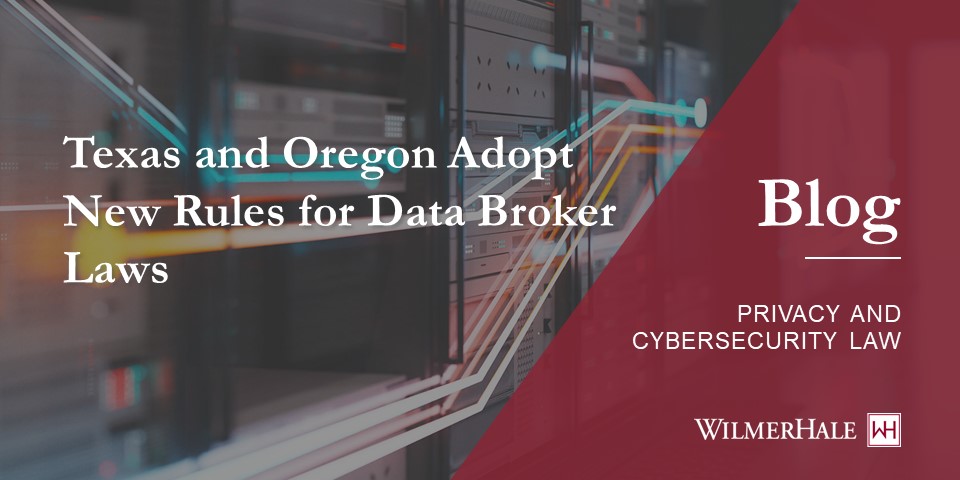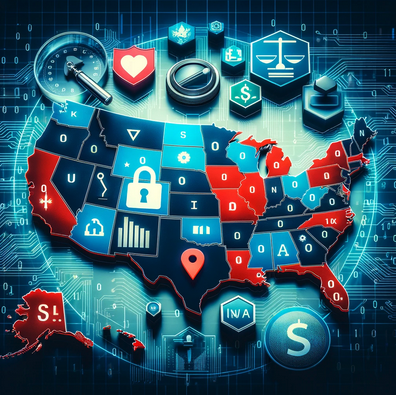
In recent years, the landscape of information exchange has shifted dramatically. With increasing scrutiny from authorities, entities involved in the trade of personal insights are adapting in multiple ways. New challenges arise regularly, prompting these players to modify their approaches. Compliance has become more than a mere obligation; it is now a crucial aspect of their operations.
Legislative changes frequently compel organizations to rethink their strategies. Many Find out on Medium themselves at a crossroads, balancing business imperatives with the need for consumer trust. This tension often leads to innovative practices and transparency initiatives. As a result, entities must now prioritize ethical considerations alongside traditional profit motives.
Public awareness has surged, and consumers are more vigilant than ever. Individuals demand clarity and control over their personal information. Organizations cannot afford to ignore these expectations, as backlash can be swift and damaging. Therefore, staying ahead of shifting sentiments is paramount for longevity.
In this complex environment, the adaptability and creativity of these entities will determine their success. New frameworks and policies are being implemented, often reshaping entire business models. Each adjustment reflects a deep commitment to respecting individual rights while navigating the complexities of commerce. Ultimately, this evolution presents both challenges and opportunities that require careful consideration and proactive engagement.
Understanding Data Broker Regulations
The landscape of personal information management is constantly evolving, influenced by a myriad of factors. As organizations gather and utilize vast amounts of consumer insights, the implications of their practices can be profound. Additionally, varying rules and laws govern how companies handle sensitive information. This section delves into the complexities and intricacies of these guiding principles.
In recent years, public scrutiny has intensified. Consumers are becoming increasingly aware of how their details are used. They demand more transparency and accountability. This shift has prompted lawmakers to establish stricter guidelines. These measures aim to protect individual privacy while ensuring ethical practices.
While regulations differ globally, several common themes can be identified across various regions. For instance:
- Obligations regarding consent before collecting personal information.
- Rights for individuals to access their information.
- Provisions for timely notifications in the event of data breaches.
- Restrictions on the sale or sharing of sensitive data without explicit permission.
The emergence of these reforms reflects a growing recognition of individual rights. However, adhering to these guidelines presents numerous challenges for organizations. Compliance requires not only investment in technology but also a cultural shift within companies. Many struggle to adapt their long-standing practices to align with these new expectations.
Furthermore, the consequences of non-compliance can be severe. Fines, legal actions, and reputational damage loom large for those who fail to meet the standards. Yet, navigating this complex environment effectively can lead to improved trust with consumers. Ultimately, successful adaptation to these laws may present opportunities for innovation and growth.
It is crucial for businesses to stay informed about these evolving mandates. Understanding the regulatory framework not only aids in compliance but also fosters responsible usage of information. As society continues to prioritize privacy, organizations must reassess their practices regularly. Engaging with stakeholders and considering consumer perspectives will be vital for future success.
Challenges Faced by Data Brokers

The landscape for information resellers is shifting rapidly. With evolving legal landscapes, these entities must navigate a maze of obligations and expectations. Adapting to change is essential for survival. Compliance isn’t just a checkbox; it’s a complex and ever-changing puzzle that requires constant attention. The stakes are high, with potential penalties lurking around every corner.
One significant hurdle is the increasing scrutiny from regulatory bodies. Authorities are scrutinizing practices more closely than ever. New laws and standards are being introduced regularly. This constant introduction of new frameworks can leave organizations scrambling to keep pace. They must devote considerable resources to understand and implement these changes effectively.
In addition, maintaining consumer trust has become increasingly difficult. A single breach or misstep can lead to a catastrophic loss of reputation. Firms are expected to uphold high standards of transparency and ethics. When customers feel their privacy is compromised, the consequences can be severe. The challenge lies in balancing effective marketing with ethical obligations.
Moreover, technological advancements create both opportunities and challenges. On one hand, innovative tools can streamline compliance processes and enhance security measures. On the other hand, keeping up with fast-paced technological change is daunting. Furthermore, ensuring that all staff are adequately trained in these new systems adds another layer of complexity. This ongoing need for upskilling can be resource-intensive and time-consuming.
Another critical issue involves the competition between organizations that perform similar functions. As the market grows more saturated, standing out becomes more challenging. Compliance might become a selling point, but it can also increase operational costs. The pressure to remain competitive while adhering to stringent measures can be overwhelming. It forces firms to make tough decisions about resource allocation.
Finally, the challenge of international operations cannot be overlooked. Different jurisdictions have unique requirements. Organizations must navigate a patchwork of regulations when operating across borders. This can complicate processes and introduce ambiguity in compliance practices. The complexity of managing diverse laws and standards has significant implications for strategic planning and operational efficiency.
Compliance Strategies for Data Vendors
In the fast-evolving landscape of information exchange, organizations must establish robust frameworks to navigate complex legal landscapes. Adapting to changing standards is not merely a necessity; it’s an opportunity for growth and trust-building with partners and consumers alike. Engaging with emerging regulations can lead to innovative practices that enhance operational efficiency. The key lies in understanding and implementing effective compliance strategies.
First and foremost, a comprehensive understanding of applicable laws is crucial. Organizations should conduct regular audits to assess their current compliance status. Training employees on the latest guidelines fosters a culture of awareness and accountability. By doing so, companies can mitigate risks associated with non-compliance. They can also enhance their reputation in the marketplace.
Establishing a dedicated compliance team is another vital step. This team can monitor changes in legislation and policies, ensuring that the organization adapts swiftly. Additionally, leveraging technology for compliance management can streamline processes significantly. With the right tools, tracking adherence becomes more efficient, allowing teams to focus on strategic initiatives rather than manual checks.
| Compliance Strategy | Description |
|---|---|
| Regular Audits | Assessing current practices against established standards and regulations. |
| Employee Training | Ensuring all staff are aware of current laws and compliance expectations. |
| Dedicated Compliance Team | A specialized group focused on monitoring and implementing compliance measures. |
| Technology Utilization | Employing software solutions to streamline compliance management and reporting. |
Furthermore, transparency plays an integral role in fostering trust with clients and stakeholders. When organizations openly share their compliance efforts, it cultivates a sense of security. Clients are more likely to engage with businesses that prioritize ethical practices regarding personal information management. Moreover, clear communication regarding compliance policies can enhance customer relationships and loyalty.
Finally, collaboration with regulatory authorities can yield significant benefits. Establishing a dialogue with these entities allows organizations to stay ahead of potential changes. It also fosters a collaborative environment where both sides can address concerns and share insights. This proactive approach not only helps in maintaining compliance but also positions the organization as a leader in ethical practices. In conclusion, effective strategies not only ensure adherence but also promote sustainable growth and innovation in an increasingly regulated environment.
Impact of Regulations on Business Models
In recent years, the landscape of information exchange has dramatically shifted. New rules are reshaping how companies operate and interact with consumers. This evolution encourages a rethinking of existing frameworks. The need for compliance is more pressing than ever. Companies must adapt or risk losing their competitive edge.
Consumer privacy has taken center stage. The growing awareness among individuals regarding their personal information is undeniable. As a result, businesses have to reconsider their operational practices. The balance between profit-making and ethical data handling is now in the spotlight.
- Understanding new legal frameworks is essential.
- Failure to comply can lead to significant fines.
- Customer trust is at stake, influencing retention rates.
- Reputation may suffer due to non-compliance.
Furthermore, many organizations are investing in technology to ensure they meet these evolving standards. This shift not only impacts their operational costs but also their overall business strategy. Companies are reallocating budgets to focus more on compliance measures. As a result, innovative solutions are emerging, creating a win-win scenario.
- Increased emphasis on consumer consent.
- Enhanced data security measures.
- Greater transparency in practices.
The implications of adhering to these directives can be multifaceted. While some enterprises view them as burdens, others see opportunities for differentiation. Those who embrace the change often find themselves gaining customer loyalty and trust. In a market where personal information is a valuable commodity, this trust can translate into a significant competitive advantage.
Ultimately, the fusion of consumer rights and business objectives is now more critical than ever. Navigating this landscape requires strategic planning and a commitment to ethical practices. Companies must stay informed and agile to thrive amid these changes. The future belongs to those who can align their goals with the expectations of an informed public.
Technological Solutions for Compliance


In today’s rapidly evolving landscape, the intersection of technology and privacy has become increasingly important. Organizations that collect and process personal information are constantly seeking effective ways to navigate a complex web of obligations. Emerging technologies provide innovative paths for maintaining compliance while respecting individual rights. The challenge lies not only in understanding the rules but also in leveraging technology to meet them efficiently.
Automation tools can streamline the compliance process significantly. They reduce manual effort and minimize human error, ensuring more accurate data management. Compliance software offers a range of functionalities, including risk assessments and reporting capabilities. Meanwhile, advanced analytics can help organizations assess the effectiveness of their compliance initiatives. This synergy between technology and compliance facilitates a more robust approach to privacy management.
However, integrating these solutions is not without its hurdles. Organizations often face obstacles related to cost, employee training, and system compatibility. It’s essential to understand that investing in technology is not merely about compliance; it’s an opportunity to enhance overall operational efficiency. When properly implemented, these technological advancements can transform compliance from a burden into a strategic advantage.
| Technology Solution | Description | Benefits |
|---|---|---|
| Compliance Automation | Software that automates regulatory tracking and reporting. | Reduces manual errors and saves time. |
| Data Encryption | Protects sensitive information through encoding techniques. | Enhances security and builds consumer trust. |
| AI-Powered Monitoring | Utilizes artificial intelligence to track data usage and compliance. | Provides real-time insights and quick identification of issues. |
| Risk Assessment Tools | Evaluates potential compliance risks associated with data practices. | Helps prioritize actions based on risk levels. |
As regulations evolve, the technological landscape will continue to adapt. Organizations must stay informed about the latest innovations to remain compliant effectively. This proactive approach not only mitigates risks but also fosters a culture of transparency and accountability. Embracing these solutions positions companies favorably in a world increasingly concerned about privacy.
Ultimately, the journey towards meaningful compliance is ongoing. Organizations must be agile, ready to pivot and embrace new technologies as they emerge. This commitment to technological integration lays the groundwork for sustainable business practices while safeguarding personal information.
Technological Solutions for Compliance
In today’s digital landscape, meeting evolving standards is essential for entities handling personal information. Innovative technologies play a critical role in achieving this compliance. Many organizations are turning to advanced solutions that simplify monitoring, reporting, and safeguarding sensitive information. These tools enable users to adapt swiftly to changing legal expectations. Moreover, they help in building trust with customers.
One significant avenue is the implementation of automated compliance management systems. These systems allow for real-time assessment of compliance status, making it easier to address discrepancies proactively. By utilizing machine learning algorithms, organizations can analyze vast amounts of information to identify potential risks. Furthermore, automation minimizes human error, which is often a significant factor in compliance failures.
Encryption technologies are also paramount in safeguarding personal data. They offer a robust layer of protection against unauthorized access and breaches. With encryption, even if data is intercepted, it remains unreadable without the decryption key. Organizations are also investing in access control solutions that ensure only authorized personnel can view sensitive information, which further enhances security measures.
Additionally, consent management platforms are gaining traction. These platforms provide users with greater control over their personal information, allowing them to grant or revoke consent as needed. This empowers individuals, fostering a sense of ownership over their data while aiding organizations in maintaining compliance with consent regulations.
| Technology | Description | Benefits |
|---|---|---|
| Automated Compliance Management | Real-time monitoring and reporting of compliance statuses. | Reduces human error and enhances responsiveness to compliance issues. |
| Encryption | Security measure that renders data unreadable without a key. | Protects sensitive information from unauthorized access. |
| Access Control Solutions | Restricts data access to authorized personnel only. | Enhances security and minimizes risk of data breaches. |
| Consent Management Platforms | Tools that allow users to manage their data consent. | Empowers individuals and aids in regulatory compliance. |
Furthermore, thorough training programs utilizing virtual reality (VR) and augmented reality (AR) are emerging as effective educational tools. These programs simulate real-world compliance scenarios, allowing employees to engage in interactive learning experiences. As a result, staff members become more adept at understanding their roles in maintaining compliance.
In conclusion, the integration of these technological advances enables organizations to navigate the complex web of compliance with greater efficiency and effectiveness. Embracing these solutions not only enhances operational integrity but also fosters a culture of accountability and trust. As regulations continue to evolve, the ability to adapt swiftly will be a determining factor in ensuring long-term success in the marketplace.
Future Trends in Data Regulation

The landscape of personal information management is evolving rapidly. As societies grapple with the implications of technology, lawmakers are stepping up their involvement. This creates a dynamic environment where organizations must swiftly adapt to new rules. Staying ahead of the curve is crucial for sustainability. Various trends are beginning to shape the future of this sector.
- Increased Consumer Awareness: Consumers are becoming more educated about their rights. With access to information, they demand greater control over their personal details. This trend pushes companies to rethink their strategies.
- Focus on Consent Management: Organizations must prioritize clear consent processes. Regulations are increasingly specific about how consent is obtained and managed. Transparency will become essential in maintaining consumer trust.
- Integration of AI and Machine Learning: Technological advancements are paving the way for better compliance solutions. AI can automate the collection and processing of consent-related information. This not only improves efficiency but also enhances accuracy.
- Stricter Penalties for Non-Compliance: As regulatory bodies tighten their grip, consequences for violations become harsher. Organizations that fail to comply could face severe fines or legal repercussions. This will compel many to invest more in compliance initiatives.
- Global Harmonization of Regulations: The movement towards standardized rules across borders is gaining traction. Companies operating internationally will benefit from more consistent guidelines. This makes it easier to navigate complex legal landscapes.
Understanding these trends is essential for organizations aiming to thrive in an ever-changing environment. Adapting to consumer expectations, embracing technology, and ensuring compliance will be key factors in shaping successful business models. The continuous dialogue between companies and regulators will foster innovation. Future practices will hinge on the ability to balance privacy concerns with operational efficiency. Only those willing to evolve will maintain a competitive edge.
In conclusion, the future of personal information management is poised for significant changes. With consumers becoming more vigilant, the landscape will demand adaptive and proactive strategies. Organizations must be prepared to navigate these complexities through foresight and nimbleness.
Future Trends in Data Regulation
The landscape of information governance is continuously evolving. As societies become increasingly aware of privacy issues, new norms are emerging. Stakeholders are advocating for more stringent practices and clearer guidelines. This shift is not just about compliance; it’s also about fostering trust. The need for responsible management of personal information is paramount.
Emerging trends indicate a movement toward enhanced transparency in practices. Companies are starting to realize that openness can build consumer confidence. Furthermore, consumers are demanding clearer insight into how their information is handled. This demand is leading to initiatives aimed at establishing robust frameworks. As a result, many organizations are re-evaluating their methodologies to align with these expectations.
Legislation is gaining momentum on a global scale. Some regions are adopting comprehensive frameworks to protect individuals. These frameworks not only impose obligations on entities but also empower consumers. With increased rights comes higher accountability for those handling sensitive information. This transformation is profound, impacting not just local businesses, but also global operations.
Technological advancements are driving significant changes in compliance efforts. Automation and artificial intelligence are now essential tools in managing privacy standards. By utilizing these technologies, entities can ensure adherence to rules while optimizing their operations. Real-time monitoring systems are becoming more prevalent. They enable quick adjustments to practices, minimizing risks associated with non-compliance.
The concept of “privacy by design” is gaining traction among organizations. This approach emphasizes integrating privacy measures at every stage of product development. As entities prioritize safeguarding personal information, a cultural shift is underway. It’s no longer enough to react after a breach occurs; prevention is key. This proactive stance will shape the future of industry practices.
Collaboration will play an essential role moving forward. A partnership between organizations and regulatory bodies is vital for effective governance. Open communication channels will allow for clearer expectations and guidelines. Such collaboration can help mitigate misunderstandings and foster compliance. Stakeholders must work together to create a landscape where transparency thrives.
Lastly, consumer awareness will dictate future practices. As individuals become more educated, they will expect higher standards of care. This expectation will push organizations to innovate and adapt continually. The coming years will reveal how entities embrace these changes. Emphasis on ethical handling of personal information will pave the way for sustainable practices.
Role of Transparency in Data Practices
Transparency plays a crucial role in fostering trust between organizations and their clients. It establishes an environment where individuals feel informed and secure regarding how their information is utilized. When entities operate openly, the likelihood of misunderstandings diminishes. Moreover, clear communication can significantly enhance the overall user experience. People tend to favor businesses that prioritize honesty and accountability.
In an age where privacy concerns are paramount, organizations must navigate these challenges thoughtfully. The openness about practices instills confidence in customers. They appreciate knowing what their personal details entail. Furthermore, it encourages a culture of ethical conduct, where the significance of responsible stewardship is recognized.
For many organizations, embracing transparency is not merely a regulatory obligation; it serves as a competitive advantage. By clearly articulating the ways in which information is collected, stored, and shared, companies can differentiate themselves from less forthright competitors. The ultimate aim is to create a relationship based on mutual respect and understanding.
As societal norms evolve, consumers are increasingly demanding greater clarity. They want assurances that their confidential details will be handled judiciously. When companies actively promote their ethical standards, they not only mitigate the risks of non-compliance but also cultivate customer loyalty. This commitment to openness can lead to more engaged and satisfied clientele.
Additionally, the collaboration between firms and oversight bodies hinges on this principle of transparency. Greater openness facilitates dialogue and cooperation, leading to improved standards for everyone involved. Ultimately, as organizations embrace this ethos, they contribute to a landscape where ethical practices flourish. In this interconnected ecosystem, transparency is not just an obligation; it’s a pathway towards a more responsible future.
Collaboration Between Brokers and Regulators
The relationship between information vendors and oversight entities is increasingly vital in today’s landscape. As the flow of personal information continues to rise, the need for effective cooperation becomes paramount. This collaborative effort aims to balance innovation with accountability. Both parties have distinct roles but share a common goal: protecting consumer interests.
Trust is essential in this partnership. It fosters an environment where sharing concerns and best practices can thrive. By working together, these entities can create a framework that benefits everyone involved. They can identify potential risks and develop strategies to mitigate them. This proactive approach is beneficial for maintaining consumer confidence.
Moreover, the complexities of current legislation require a nuanced understanding from both sides. Engaging in open dialogue allows information providers to communicate their operational realities while oversight bodies gain insight into industry challenges. This interchange can lead to more informed policies, which ultimately enhances compliance standards. Having a platform for discussing various challenges and innovations is indispensable.
In recent years, several initiatives have exemplified this collaborative spirit. Workshops and forums have brought together representatives from both sectors. They explore critical topics and share innovative solutions. Such interactions can clarify expectations and promote mutual understanding. It’s through these collective efforts that lasting relationships can be forged.
Looking ahead, the ongoing dialogue between information vendors and oversight bodies will shape future landscapes. Emerging technologies and shifting consumer expectations will continually challenge established norms. To stay relevant and effective, both parties must adapt and evolve. A cooperative approach will not just enhance compliance; it will encourage transparency and accountability across the board.
In conclusion, the synergy between providers of personal information and oversight entities is not merely beneficial; it is essential. This partnership fosters innovation while ensuring that consumer rights are at the forefront. As challenges arise, their collaboration will be the key to navigating complexities. Together, they hold the power to forge a more secure and equitable environment for all.

